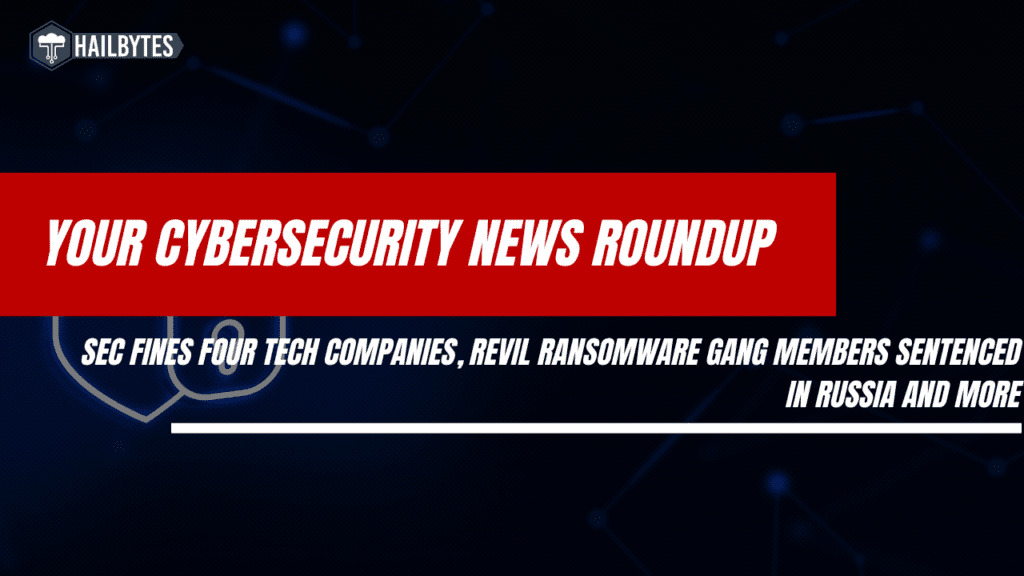SEC Fines Four Tech Companies, REvil Ransomware Gang Members Sentenced in Russia: Your Cybersecurity Roundup
SEC Fines Four Tech Companies for Misleading Disclosures About SolarWinds Hack
The SEC has charged four companies for misleading investors about the impact of the SolarWinds hack.
Unisys, Avaya, Check Point Software, and Mimecast have been fined for downplaying the severity of the breaches and failing to disclose critical information to investors. The companies were aware of the extent of the attacks but chose to minimize the risks in their public statements.
The SolarWinds supply chain attack, which occurred in 2020 compromised thousands of organizations worldwide, including government agencies and critical infrastructure providers. These four companies charged by the SEC failed to adequately disclose the extent of the breach and its potential impact on their operations and financial performance.
The SolarWinds hack, a significant cyber espionage campaign, compromised numerous organizations, including government agencies and private companies. The SEC’s actions highlight the importance of accurate and timely disclosure of cybersecurity incidents by public companies.
Deploy Gophish
REvil Ransomware Gang Members Sentenced in Russia
Four members of the notorious REvil ransomware gang have been sentenced to prison terms in Russia. The group, known for high-profile attacks, including the Kaseya supply chain attack, was dismantled in 2022 following international cooperation.
The convicted individuals were found guilty of illegal circulation of means of payment and, in some cases, distributing malware. The sentences range from 4.5 to 6 years in prison.
This development marks a significant milestone in the global fight against cybercrime, demonstrating that law enforcement agencies can successfully disrupt and dismantle ransomware operations.
The sentencing of REvil members highlights the growing international cooperation between law enforcement agencies to combat cybercrime. As cyber threats continue to evolve, it is crucial for governments and law enforcement to work together to bring cybercriminals to justice.
Resurgent Cyber Threats: Bumblebee and Latrodectus Make a Comeback
Despite significant law enforcement efforts, the cybercrime landscape remains a dynamic and ever-evolving threat. Two prominent malware families, Bumblebee and Latrodectus, have resurfaced, demonstrating their resilience and the adaptability of cyber criminals.
Bumblebee, a sophisticated malware loader, has returned with new tactics, leveraging stealthy techniques to evade detection and deploy malicious payloads. It uses various methods, including phishing emails and compromised websites, to infect systems.
Latrodectus, a potent malware strain, has also reemerged, leveraging advanced capabilities to steal sensitive information and disrupt operations. The malware is known for its ability to adapt to evolving security measures and its persistent nature.
To combat these threats, organizations must adopt a proactive approach to cybersecurity. This includes staying informed about the latest threats, implementing robust security measures, and training employees to recognize and avoid phishing attacks. By staying vigilant and adapting to the ever-changing threat landscape, organizations can minimize the risk of falling victim to these and other cyberattacks.
